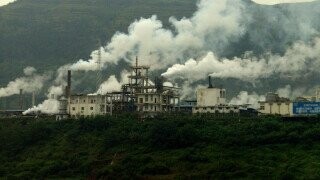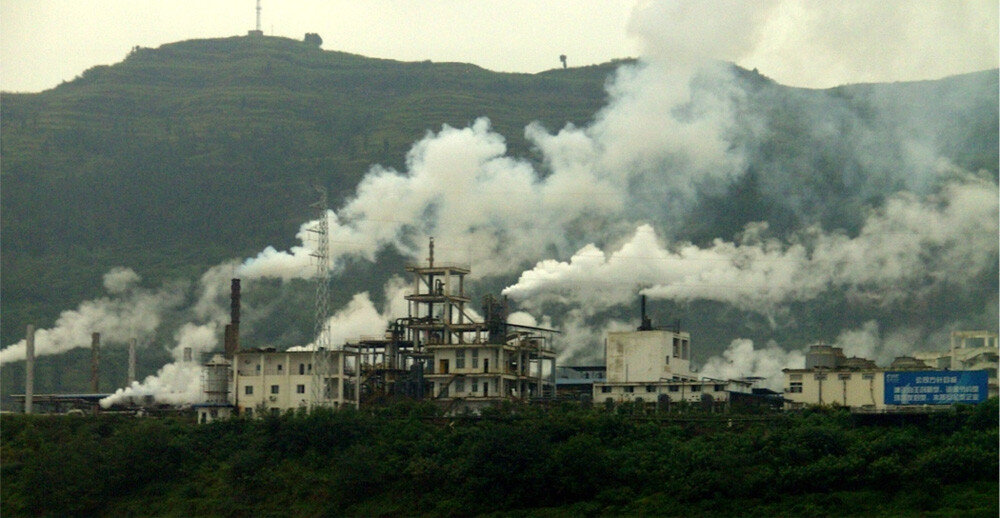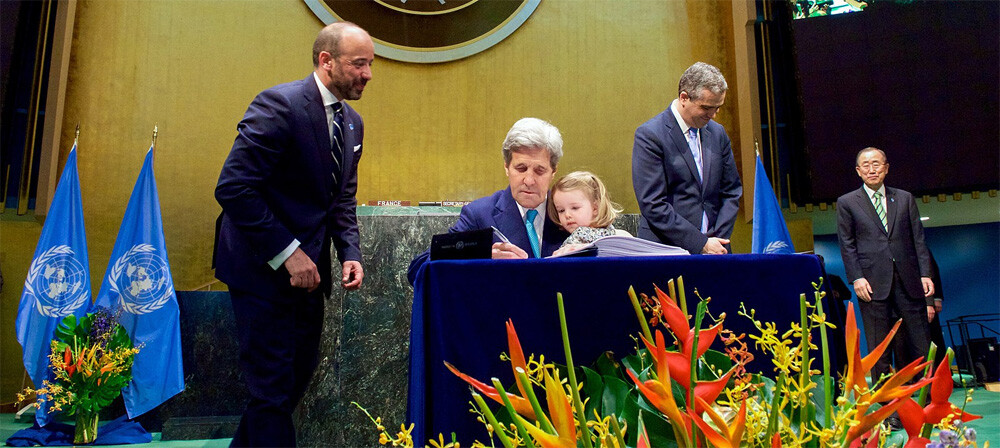5 Popular Environmental Beliefs (That Aren't Totally Accurate)

So the world is slowly burning to ashes thanks to climate change, and stuff is kind of going from bad to worse to “Holy cow, we’re all gonna die," and it seems like just about everyone and their dog has a solution for how to fix it ... or so you think.
See, when it comes to becoming better green eco-warriors for Mother Nature, a lot of us have well-intentioned ideas, but a lot of them just flat out don’t work at all. Some of these are really popular and common myths about environmental issues, like …
"China Deserves All The Blame"
Don't Miss
Carbon emissions have been on a crazy high climb for the past few decades, thanks to the rapid explosion of mass production and global megacorporations like Amazon creating more pollution faster than you can say, “Alexa, guillotine Jeff Bezos.” Carbon dioxide has reached unprecedented levels and is at an all-time high. Who’s to blame for this all? Well if you take statistics from popular media outlets at face value, it’s China, as China reportedly produces more pollution than all of the other countries. Reportedly, China emitted 27% of all greenhouse gases created in 2019.

On the surface, this seems huge, but you actually have to look beneath the hood and see what’s happening. Everyone is kind of blaming China for problems that other countries like America are actually responsible for. The US imports a lot of goods from China, often from US companies that are located in China that produce goods for other countries. In other words, American companies are producing goods outside of America, driving up emissions rates for China.
Pretty much all of these so-called “helping the environment” initiatives by Western countries fall completely flat on their face when you realize that most of them are just outsourcing carbon to other countries, making their own countries look green-friendly by comparison.
"What We Need Are International Agreements"
When Trump lost to Biden in the 2020 elections, the world breathed a sigh of relief collectively, especially eco-activists who saw this as a chance for America, one of the largest polluters in the world, to finally rejoin the Paris Agreement, an international treaty signed by 197 countries to reduce emissions in an attempt at curbing the oncoming threat of climate change.

This seems like a great idea on the surface, right? Close to 200 countries signed a big agreement that’ll finally pressure them and companies to make the change before we’ll all need underwater real estate. Except that the Paris Agreement, along with other similar agreements, won’t actually change anything.
For starters, a lot of people assume the Paris Agreement makes countries take action, but this is very far from the truth. There are actually zero repercussions for any country breaking their oath or even failing to reduce emissions at all. On top of that, the hastily written document has basically no set requirements or emissions levels that countries collectively need to hit. Countries make their own goals and decide when they’ve hit them, which is a bit like giving yourself a gold medal for doing nothing. Any country can set any goal they want, no matter how blatantly useless it is, then claim that they’ve done their part.

And this isn’t the first time either, as we've had climate agreements before, but they failed completely and weren’t binding at all ... or when they were, only served to punish developing countries for emissions that come from outsourced manufacturing. Looks like America is good at outsourcing both pollution and responsibility.
"Switching To Electric Cars Will Save Us"
As evidenced by Elon Musk's growing bank account and ego, electric cars have caught on in a big way in the past few years or so. Gone are the days of them being niche automobiles for weird rich nutcases or silenced completely by Big Oil, as electric car sales have been exploding greatly in the past few years or so, with many traditionally fossil-fueled car companies like Ford or Honda releasing their own affordable electric models.
And it’s easy to see why. Gasless vehicles are attractive due to their purported green energy-saving claims, along with them being cheaper long-term without needing to buy gas. But are electric cars as hands (uh, doors?) as clean as Elon claims they are? Not really.

For starters, the number of resources and energy needed to produce an electric car is still pretty big. The carbon footprints of Tesla factories are steadily climbing each year, and it seems as though they are trying to hide this very detail. A multi-billion dollar corporate entity wants to maintain its public image? What a mystery.
On top of that, Tesla cars still create quite a bit of pollution. The energy used to charge a tesla has to come from somewhere, and for most people, that energy currently comes from coal and other fossil fuel sources. Then Tesla cars have the unintended effect of making people think that this is the solution to climate change and nothing more needs to be done, which, as stated before, is not how climate change reduction happens. On the bright side, though, you’ll look pretty cool running over your neighbor’s cat and/or dog with your silent pet killer of a machine.
"Using Paper Straws Is Better Than Plastic Straws"
Lately, there’s been this obnoxious trend where cities and business establishments are outright banning plastic straws. The argument here is that using plastic straws puts a major burden on the environment and that we can easily get by with straws made from paper, pasta, or other sustainable resources.
This is a bad idea for a few reasons. Paper straws suck, and not in the way straws are supposed to suck. Back in 2019, McDonald’s in the UK switched to all paper straws, and customers reported the straw dissolving before they finished their drink. McDonald's also proudly proclaimed that the straws were recyclable, which they aren't.

As for the impact straws have on the environment, that's actually smaller than you might think. Some studies found that plastic straws don’t actually do as much damage as purported. It’s almost like climate change is a more complicated problem than just putting the burden on individuals to do very tiny individual lifestyle changes that don’t add up to much.
Another argument against plastic straw bans comes from disabled people who have a difficult time with the sturdiness of paper and pasta straws, and kind of depend on the flexibility of plastic to drink beverages. Plenty of disabled people argue that such wide-scale bans only serve to make things harder for them.
"You Should So Go Vegan"
Vegetarianism and veganism are both pretty good things that come with their own personal benefits, along with the satisfaction of opting out of a pretty cruel and exploitative industry. Vegetarians get mocked a lot, but there’s nothing actually wrong with going to an all meatless diet.
However, there’s this pervasive myth that going meatless also helps the environment substantially, and that's not as true as you might think. For starters, the farms and factories growing and processing your fruit, vegetables, and soy products still take up a good bit of energy, not to mention the fuel needed to transport stuff like asparagus to other countries. On top of that, though you don't plan on it, stats say that you're likely to put the extra money you save by not buying meat is into other carbon-emitting sources, like vehicle purchases or extra plane trips. And meat products are going to get produced, regardless of whether you buy them. The unbought meat just gets thrown out, as supermarket food waste is a very huge and growing problem that won’t go away with a vegan diet.

Individual actions like going meatless are great for individual people, but for larger structural problems, they don’t really put a dent in the global warming crisis. So whether you eat meat or not, don’t feel shame or pride, because either way, your habits alone won’t be enough to fix the world. We guess you could always go join a protest, though. That's sure to solve everything.
Top Image: High Contrast/Wiki Commons
